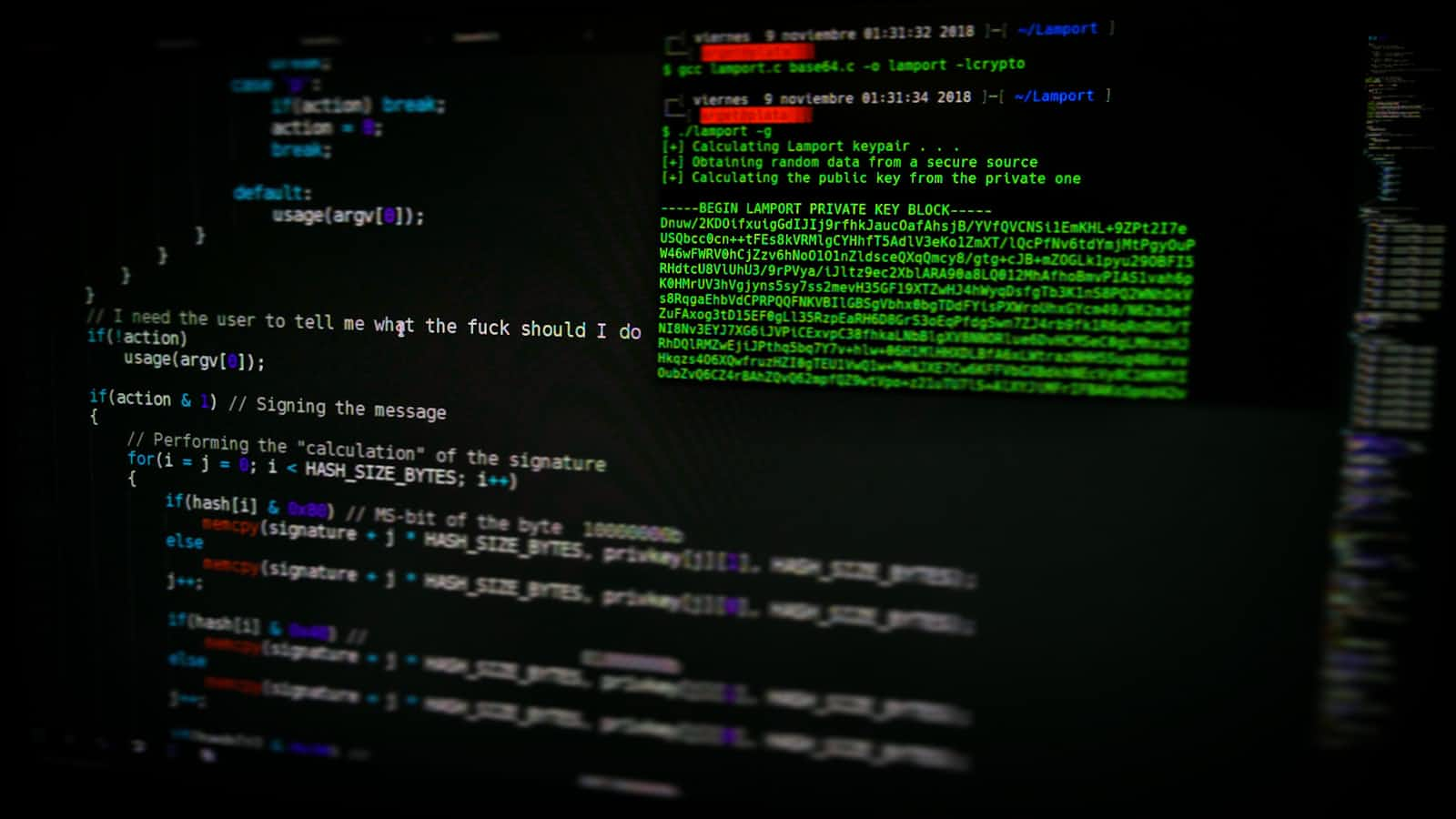My Journey to Passing the CAPenX Certification: A Guide for Aspiring Expert-Level AppSec Pentesters
 Sergio Medeiros
Sergio Medeiros
Introduction: As a seasoned cybersecurity researcher and penetration tester, I am constantly on the lookout for certifications that sharpen my skills and keep me at the forefront of web application security. The Certified AppSec Pentesting Expert (CAPenX) certification from SecOps Group offers just that. Known for its rigorous focus on advanced attack vectors, CAPenX is ideal for professionals aiming to push their web application pentesting skills to an expert level. Having successfully passed this exam, I’m excited to share my experience and insights to help others prepare for the challenge.

CAPenX Certification Overview: The CAPenX certification is a hands-on, expert-level exam, designed to evaluate your ability to detect and exploit complex vulnerabilities in real-world scenarios. Unlike many certifications, CAPenX requires a deep understanding of attack vectors and a high degree of creativity in payload construction. The exam includes 10 flags spread across two vulnerable web applications, and candidates are expected to navigate through sophisticated vulnerabilities that often require tailored payloads.
Complex Vulnerabilities Tested in CAPenX: The CAPenX certification goes beyond traditional vulnerabilities, testing candidates on highly specialized, intricate attack types. Here are the top vulnerabilities covered, which require advanced knowledge and custom-built payloads:
Password Reset Vulnerabilities: Candidates need to identify weak spots in the password reset functionality, which can be exploited for unauthorized access.
Broken Access Control via API: Modern applications often use APIs extensively, and understanding how to detect and exploit broken access control in these interfaces is essential.
Advanced Server-Side Request Forgery (SSRF): This isn’t your typical SSRF; the exam challenges you to identify unique ways of bypassing restrictions and gaining access to internal resources.
Command Injection: CAPenX tests your knowledge of exploiting command injection vulnerabilities, requiring you to execute OS commands via careful payload construction.
SQL Injection: The exam dives deep into SQL injection, demanding a strong understanding of database interactions and the ability to bypass filters.
Stored XSS Attack Chains: CAPenX doesn’t stop at simple XSS. Expect to create attack chains, where stored XSS vulnerabilities are combined with other flaws to achieve maximum impact.
Race Conditions: Identifying and exploiting race conditions can be challenging. CAPenX requires candidates to leverage timing-based vulnerabilities to manipulate application logic.
JWT Token Forging: The exam tests your knowledge of JSON Web Tokens (JWT), including techniques for forging or tampering with tokens to bypass authentication or authorization.
In-Depth Enumeration: CAPenX demands thorough enumeration skills to uncover uncommon attack vectors, such as hidden parameters or sensitive information disclosures.
Advanced XXE Attack Chains: This isn’t basic XXE; expect to chain XML External Entity vulnerabilities with other weaknesses to gain deeper access or execute more complex exploits.
For those looking to practice, PortSwigger Web Security Academy offers labs on many of these advanced vulnerabilities. However, it’s important to note that simply “Googling” payloads won’t be enough. This exam requires a full understanding of how to exploit each vulnerability based on the specific application’s functionality and setup. Each payload, especially the advanced attack chains, needs to be custom-built, often after analyzing and experimenting with the application's behavior.
Exam Format and Key Takeaways: CAPenX is a seven-hour, VPN-based, practical exam where candidates need to discover all 10 flags across two web applications. This hands-on approach tests not only your technical skills but also your problem-solving abilities under time pressure. The realistic setup simulates the experience of working on a client engagement, providing candidates with a close-to-real-world scenario.
The exam’s emphasis on crafting unique payloads is what sets it apart. With a range of modern vulnerabilities that cannot be exploited with generic payloads, CAPenX pushes you to think critically and approach each vulnerability from multiple angles. You’ll find that deep knowledge and adaptability are essential, as every test case demands a unique approach.
Personal Experience and Challenges: Even with years of experience in red teaming and web application security, I found CAPenX both challenging and immensely rewarding. I faced vulnerabilities that required me to blend known techniques with a customized touch to exploit them. Here’s how I tackled some of the major areas:
Advanced SSRF and Command Injection: These challenges underscored the importance of understanding server behavior and crafting specific requests to trigger the vulnerabilities. I had to iterate through various payloads, adjusting each based on server responses, until I landed on one that worked.
Stored XSS Attack Chains: The exam didn’t simply test my ability to find stored XSS—it required me to construct a full attack chain. This type of vulnerability combined with others added a new level of complexity, emphasizing the importance of chaining attacks for maximum impact.
JWT Token Forging and Race Conditions: Exploiting JWT token vulnerabilities was particularly satisfying, as it required knowledge of token structure and encryption methods. Race conditions, on the other hand, demanded quick, timing-based testing and a solid understanding of concurrency in web applications.
Preparation Tips for Aspiring CAPenX Candidates:
Practice In-Depth Enumeration: CAPenX rewards thoroughness. Practice identifying hidden parameters and access points through enumeration to locate uncommon vulnerabilities.
Study API Security: Given the emphasis on API vulnerabilities, it’s essential to understand API authentication flaws, broken access control, and injection points. PortSwigger Web Academy, TryHackMe, and HackTheBox have excellent API-focused labs for practice.
Master Payload Crafting: Effective payload creation is key. Practice building and modifying payloads to evade detection and exploit specific vulnerabilities. Focus on SSRF, XXE, and advanced injection techniques.
Set Up a Personal Lab: Using tools like Burp Suite and OWASP ZAP, set up a personal lab to test these vulnerabilities in a controlled environment. Experiment with different combinations to see how vulnerabilities can be chained together.
Research JWT and Token-Based Vulnerabilities: CAPenX challenges your understanding of JWT manipulation. Learn about JWT structure, signing, and encryption to prepare for token forging scenarios.
The Value of CAPenX in Professional Growth: Earning the CAPenX certification has been invaluable in honing my skills as an AppSec expert. It’s more than just a certification; it’s a badge of competence, demonstrating your ability to handle advanced attack vectors and construct custom payloads. For penetration testers and red teamers, CAPenX is a testament to your capability in application security and your readiness to take on sophisticated vulnerabilities in real-world engagements.
Final Thoughts and Recommendations: Taking the CAPenX exam was a rigorous, fulfilling journey. It has expanded my understanding of application security and deepened my knowledge of attack chains. For anyone interested in pursuing CAPenX, be prepared to think creatively, understand vulnerabilities at a detailed level, and put in the time to craft unique payloads. This is not an exam you can pass by relying on existing payloads—it demands a complete understanding of the applications and how to exploit their specific functionalities. If you’re ready for the challenge, CAPenX is a certification that will undoubtedly enhance your skills and open doors in the AppSec industry.
Subscribe to my newsletter
Read articles from Sergio Medeiros directly inside your inbox. Subscribe to the newsletter, and don't miss out.
Written by

Sergio Medeiros
Sergio Medeiros
| Vulnerability Operations @ Synack | Bug Bounty Hunter. Security Researcher. Wannabe hacker, sharing my thoughts on how to be successful in the cyber security space, after pivoting careers of being a decade long Sales Director.